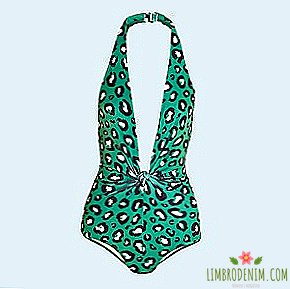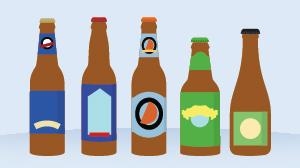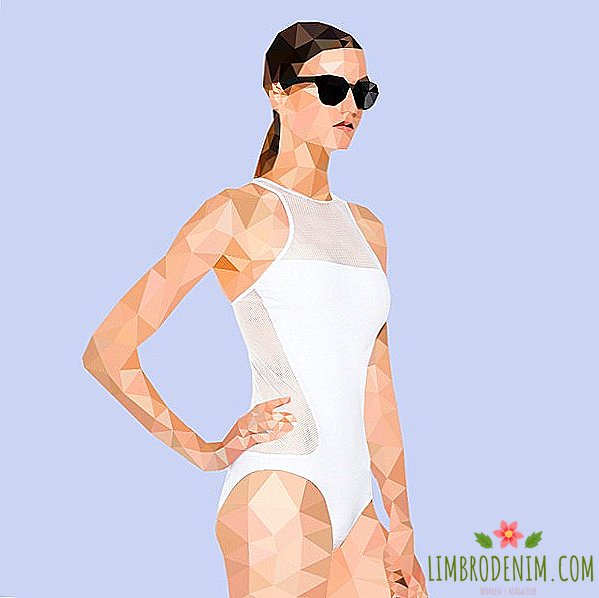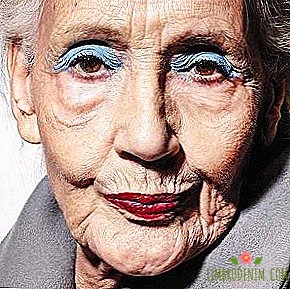Attach the plantain: 10 popular misconceptions about health
Text: Olga Polevikova
Folk wisdom in their nature are like gossip: it would seem that there is a grain of truth, but it is very difficult to get to the bottom of it. First, during the summer holidays with our grandmother, we learn about the magical properties of the plantain, then our mother reprimands us for reading a flashlight under a blanket and spoiling our eyesight, and there we are not far from homeopathy. That there are myths - even some generally accepted "truths" sometimes do not stand the test. It is useful to contact them from time to time in order to understand where the scientific fact is, and where the popular wisdom is. We chose ten popular ideas about health and treatment and figured out if they even had some truth.

Vitamin C is able to save from colds and flu
Vitamin C is involved in a huge number of metabolic processes in the body, including helping to cope with emotional and physical stress. It is known that ascorbic acid reduces the level of cortisol and accelerates the recovery of the body after large loads, for which athletes love it. But scientific evidence that this vitamin helps to fight colds and flu was not found.
Experimentally it was found that it helps prevent colds during periods of brief and extreme physical exertion at low temperatures, like marathoners and skiers or soldiers in the subarctic climate, but there is no detailed explanation for this phenomenon. In all other cases, it is better to regularly eat broccoli, tomatoes, lemons and other products containing vitamin C for the normal functioning of the body. Ascorbic acid does not accumulate, so do not eat oranges in kilograms: the daily dose for an adult is 75-90 mg.
When reading in the dark, vision deteriorates
The main cause of poor vision is genetics. If parents had poor eyesight, then with a probability of 40% the story will repeat in children. Another common problem is computer visual syndrome, which occurs when the distance to the screen is not correct while working with electronic devices. So at the reception at the ophthalmologist it will be more important whether your mother wears glasses and how your workplace is arranged, and if you do not like to read without a desk lamp.
The study, published in 2007 in The BMJ, refutes the myth that reading in the dark is harmful. At night, it is really harder to focus, the person blinks less often, the surface of the eyeball dries out, which causes a feeling of discomfort. But such tension passes without harm to the eyes. Most modern research and scientific debates revolve around how work with closely located objects, as well as head position, affects vision. For example, there is evidence that reading on the back is not as harmful as sitting and looking at a book from top to bottom.
During illness, you need to eat hard to gain strength
During a cold or flu, it is important not to stop eating normally, but feeling unwell is not a reason for overeating. When the body fights an infection, it needs energy, which means it needs to supply it with calories and nutrients. This is especially important during the heat: fever is the mechanism of the immune system that triggers an accelerated metabolism. Each degree requires more and more energy, which means calories. At the same time, it is important not to burden the body by digesting heavy foods: all forces must be thrown to win the infection. So from pork ribs and sandwiches it is better to refuse in favor of low-fat chicken broth: it is liquid, and warm, and moderately high-calorie.

With a cold, you need to sweat to get better soon.
Sweat helps the body to cool down and flush toxins and shows up on the body when the heat subsides. High temperature is needed in order to mobilize the immune system, so if it is below 38.5 degrees, it is better to give the body a chance to compete with it. Pot - it is rather a signal that you are on the mend, and not the cause of what is happening. However, large-scale research on the relationship of sweating and speed of recovery, apparently, was not conducted.
There is also a belief that going to the bath will help with the initial symptoms of a cold. Austrian scientists checked this assumption and for six months they watched a group of 50 men: half went to the sauna regularly, half did not. Among those who steamed, cases of cold were actually less than in the control group, but, as scientists note, it is too early to draw conclusions and further tests are needed.
Skin lesions heal better when exposed to air.
Just the opposite: the air dries the epidermis and slows the formation of new cells. In addition, an unhealed open wound can easily infect the infection. For regeneration, it is better that the wound is covered with a bandage or a plaster, so that the medium will be moist and protected from bacteria. The wound should be rinsed regularly, and the dressing or patch should be changed at least once a day.
Forget about a plantain: an unwashed leaf of a bush from a roadside will not give anything, except additional microbes. But if you “blow on the wound,” the crust actually forms faster - in about three hours instead of the usual days for this process, however, more tissues will die off. So, according to scientists, it is possible to blow on damage, but it is worth doing it only if the rapid formation of a crust helps to avoid infection, for example, with large burns.
Calcium with vitamin D strengthens our bones.
Human bones contain 99.5% of the calcium found in the body, and vitamin D helps us absorb it from food. Vitamin D is synthesized by the sun, and also enters the body with food. It is believed that it is difficult to fill the daily rate of some products. For example, the US National Institute of Health recommends taking about 15 mcg of vitamin D per day in supplements, and after 65 years, increase the dose to 20 mcg, as the risk of osteoporosis increases with age. However, according to some data, for women after menopause, increasing the dose does not lead to the desired effect and, conversely, provokes the formation of kidney stones. Be that as it may, at any age, before using dietary supplements and vitamins, it is better to consult a doctor.

Tea with honey and lemon cure a cold
A cure is not, but it can ease the symptoms. During an acute respiratory disease, it is recommended to drink plenty of fluids: it removes toxins through sweating and urine, prevents dehydration and relieves the pains of the inflamed nasopharynx due to the expansion of blood vessels. Another thing is that the liquid can be any: water, juice, milk, including tea with honey and lemon. Black tea contains caffeine, which increases the overall tone of the body, so for a while you cheer up, which, however, does not mean a victory over the virus.
There is no scientific evidence of the benefits of honey and lemon for colds. In the real effect of vitamin C, we have already figured out - as for honey, it helps to soften the cough. In sore throat, however, it should be used with caution, as it can increase irritation. It is worth remembering that at a temperature above 37 degrees honey loses its beneficial properties, so it is better to eat a teaspoon just like to add to a drink.
Blueberry helps restore vision
Legend has it that during World War II, the pilots of the British Air Force ate a blueberry jam before each night flight to better see the targets of the enemy. Blueberry does contain lutein pigment, which is important for the normal functioning of the eye: it protects it from excessive light and from ultraviolet radiation. Evidence that lutein helps to see in the dark and restores visual acuity, was not found. It is not synthesized by the human body and mainly accumulates in the retina. There are no recommendations on the daily rate of lutein, as well as an understanding of the form in which it is more efficiently absorbed, from food or dietary supplements. On the other hand, studies confirm that a diet rich in lutein reduces the risk of age-related diseases such as cataracts and retinal degeneration. It is recommended to take it in combination with the pigment zeaxanthin and vitamins C and E.
Acne occurs from malnutrition.
Acne is a tricky thing. Characteristic inflammations can appear at any age, and the only cause of their occurrence cannot be identified. Genetics, stress, hormones, nutrition, hygiene - there are a lot of factors, and it is difficult to predict which of them will trigger and cause the disruption of the sebaceous glands. The appearance of acne can indicate various kinds of malfunctions in the body: even a few systematically popping acne is a reason to consult a doctor, if only to make sure that health is within normal limits.
As for food, scientists are not yet completely clear. The appearance of acne is blamed on foods high in simple carbohydrates and some fatty acids, as well as dairy products. Studies show that there is a statistical relationship between these products and acne, but whether this is a causal relationship is still unknown. In any case, a healthy diet has not prevented anyone.
If you crunch your fingers, you can earn arthritis.
Popular rumor says that if you sweetly sip to the crunch in the joints or knead the fingers, imitating the sound of chopping nuts, then in old age arthritis will happen. In fact, there is no medical evidence for this. But there are two possible causes of bone crunch. First: while snapping, the articular capsule stretches, the pressure in it drops, the articular fluid spreads, and gas bubbles form - they burst with a click. The second: the sound occurs when moving due to quickly stretching ligaments and tendons. In any case, the worst thing that threatens an amateur to crackle with joints is the irritated views of others.
Photo: margo555 - stock.adobe.com, nipaporn - stock.adobe.com, Africa Studio - stock.adobe.com, fox17 - stock.adobe.com




